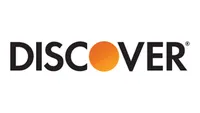Discover and SoFi are two popular options for online lending. It’s likely that you’ve seen them pop up, no matter how far along you are in your search for the best personal loan.
Both Discover and SoFi offer personal loans for borrowers with good or excellent credit and therefore have similar eligibility requirements. While both lenders tailor their loans to specific consumers, SoFi is accessible to a broader range of borrowers by allowing co-signers.
Discover versus SoFi at a glance
Discover offers smaller loans and low fees, while SoFi offers much larger loans with slightly higher rates and more potential fees. However, because SoFi allows co-signers, borrowers with credit scores across the spectrum have a better chance of being approved with lower interest rates, even though the minimum credit score requirement is higher than Discover’s.
| To discover | SoFi | |
|---|---|---|
| Bank rate score | 4.8 | 4.8 |
| Better for | Low minimum amount | Extensive credit benefits and benefits |
| Loan amounts | $2,500 – $40,000 | $5,000 – $100,000 |
| APRs | 7.99%-24.99% | 8.99%-24.49% |
| Length of the loan | 36-84 months | 24-84 months |
| Cost | $39 late fee | Optional costs |
| Minimum credit score | 660 | Not specified |
| Time for financing | Next working day | As soon as the same day |

Discover personal loans
Learn more
in our bank interest overview
-
Plus points
- No origination fees.
- Provides prequalification.
- Reimbursement tool.
Cons
- Late fee.
- No co-signers allowed.
- Low maximum loan amount.

Personal loans from SoFi
Learn more
in our bank interest overview
-
Plus points
- Rate discounts.
- Member benefits.
- Co-signers accepted.
Cons
- Strict eligibility criteria.
- High minimum loan amount.
- No physical locations.
How to choose between Discover and SoFi
Discover and SoFi meet the needs of different consumers. On the one hand, a personal loan from SoFi may be better for borrowers who have trouble managing their payments and need a larger loan. On the other hand, Discover’s personal loans are smaller but potentially cheaper for people with excellent credit, both in fees and interest.
Discover allows you to borrow smaller amounts
Borrowers needing less than $5,000 with a solid credit history, a minimum annual income of $25,000, and an excellent credit score will benefit most from a personal loan from Discover. For the most creditworthy borrowers, Discover has the potential to be more affordable than SoFi. Rates start at 7.99 percent, while SoFi’s rates start at 8.99 percent.
Discover also does not charge an origination fee or associated costs. However, you will be charged a $39 fine. If Discover’s low fees and rates sound attractive to you, make sure your credit is at least above 660 (this is the minimum score), as the lender doesn’t allow cosigners.
SoFi offers extensive benefits to borrowers
SoFi is known for its benefits, resources and customer benefits, and is best suited for borrowers looking for a larger loan. It also offers prequalification, which lets you check your eligibility and potential rates that will impact your credit, so those who don’t have near-perfect credit can see if they need a creditworthy cosigner before signing up.
SoFi’s member benefits are what really sets the company apart from the rest. It offers member-only benefits, including rewards and events. Additionally, it has a dedicated settlement team dedicated to assessing your circumstances and finding options for you if you experience financial difficulties and are unable to make your payments.
Compare more lenders before signing up
Discover and SoFi both have similar eligibility requirements and are well-known, reputable lenders. However, SoFi’s cosigner option and unique member benefits make this lender stand out from the rest. However, you can borrow a much lower amount from Discover. And if you have exceptional credit and a stable income of more than $25,000 per year, you may have better luck qualifying for a cheaper loan.
If you can’t decide which lender to go with, compare rates to find the loan that best suits your financial goals in the long term.




